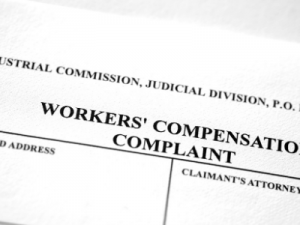Workers’ Compensation vs. Third-Party Workplace Injury Settlements
When an employee suffers a workplace injury workers’ compensation coverage will cover a portion of lost wages for the duration of time your doctor says you should refrain from working and medical expenses related to the injury.

This insurance pays for employees while they are out of work and for “reasonably necessary medical care” due to an injury on the job or occupational illness.
Workers’ compensation insurance is a mandatory, no-fault insurance policy paid for by employers. In most states, employers with one or more employees must have workers’ compensation coverage. The system provides benefits to employees as long as they can show that the injury occurred while at work and performing a work-related duty.
Can you sue Your Employer for a Workplace Injury?
The workers’ compensation system was established in order to shield employees from being in the difficult position of suing their employer and protects companies from lawsuits filed by workers. Generally, employers are immune from liability for an injury sustained by an employee in a job accident. Rather than civil court, cases go before the Workers’ Compensation Commission and are presented before an administrative law judge.
What Benefits Does Workers’ Compensation Provide?
The damages available in workers’ compensation cases are limited to a percentage of lost wages, or two-thirds of the Average Weekly Wage (AWW), and expenses related to the treatment of the injury or job-related illness. Workers’ comp insurance does not cover pain and suffering, mental or emotional anguish or punitive damages, and you won’t receive full lost wages through workers’ comp.
Can I Bring a Claim Against Another Party in a Workplace Injury?
Often in cases of serious injury and long-term disability, workers’ compensation benefits are insufficient. Overwhelmed by doctors’ appointments, medical bills and uncertainty about the future, workers who suffer a disabling injury needing long-term treatment are seeking other means to address their financial concerns and recovery.
If your injury was caused by someone other than your employer or a coworker, you may have a third party personal injury case. Third-party claims for a worker injury are personal injury claims against a person or entity that has legal liability for the injury.
Difference between workers’ comp and third-party claims
Third-party lawsuit settlements can recover damages not available through workers’ compensation such as pain and suffering and loss of future earnings. Learn more about the differences between workers’ comp and third-party claims.
Third-Party Settlements to Compensate in Cases of Severe Injury
Third-party personal injury lawsuits are separate from claims for workers’ compensation coverage. An example would be an industrial worker who suffers the loss of an arm while operating a piece of machinery. The employee would be entitled to worker’s compensation benefits but might also have a claim against the company who designed, supplied or installed the equipment if the equipment was improperly installed or faulty. Circumstances such as construction accidents due to defective equipment, inadequate safety mechanisms, or reckless conduct are situations that should be given responsible legal guidance.
Should I Pursue a Third-Party Settlement for my Injury?
In some cases, a third-party lawsuit will be to the financial benefit of the injured worker. A third-party settlement can help injured workers recover some of what has been lost due to loss of income or income growth, to ensure medical expenses are not a burden, and to compensate for lifestyle interruption and pain and suffering. Due to the complexity of third-party personal injury claims, it is important that your case is properly and adequately analyzed.
Trusted and respected severe injury attorneys with extensive trial experience, Trammell Piazza specializes in workplace injuries involving a defective product or equipment malfunction. These injuries are beyond the scope of workers’ compensation and require special legal expertise.